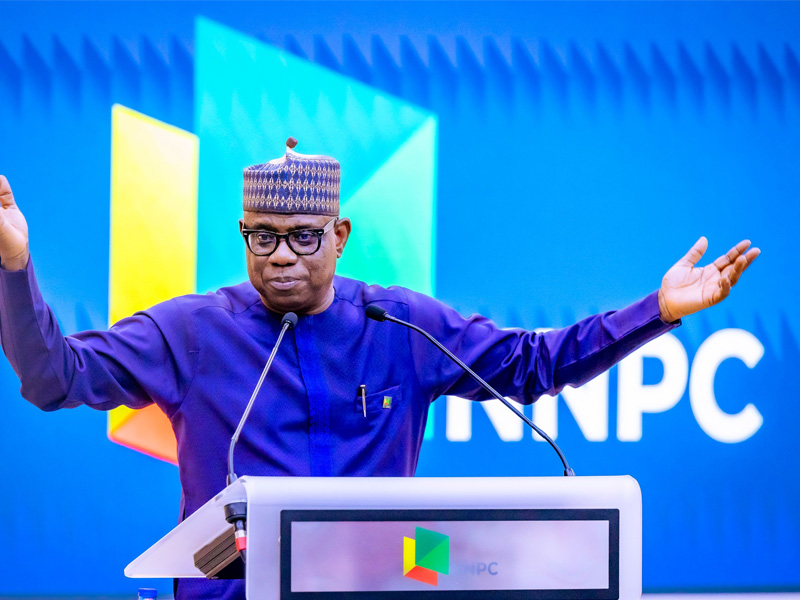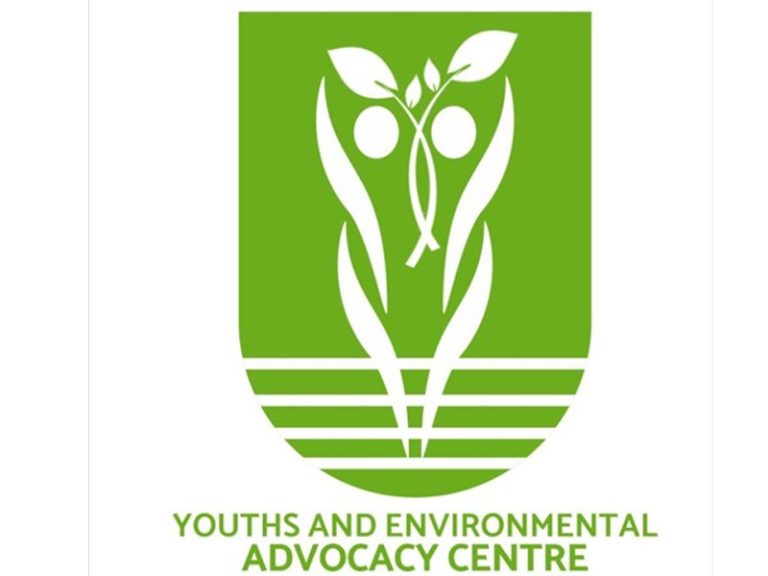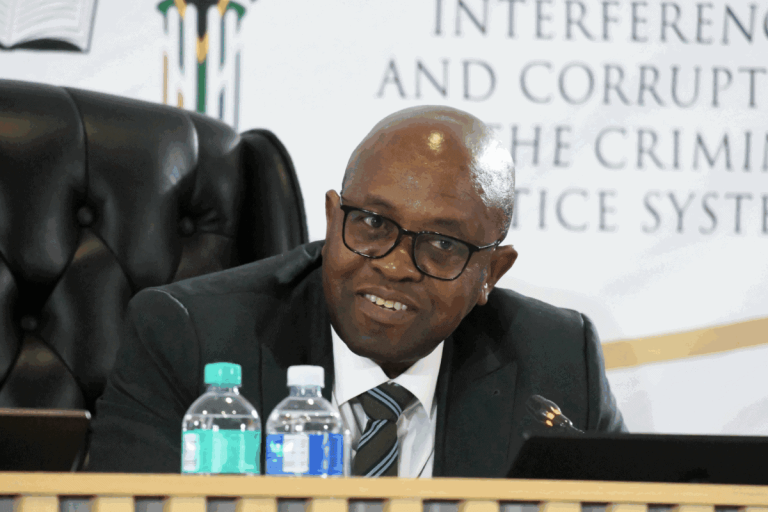
The Nigerian National Petroleum Company Limited (NNPC Ltd.) on Monday released its audited financial statement for the full year ended 2024, reporting a Profit After Tax (PAT) of N5.4 trillion on a revenue of N45.1 trillion.
The N45.1 trillion revenue for 2024 represented an 88 per cent year-on-year growth, while the PAT of N5.4 trillion was a 64 per cent year-on-year rise. Besides, earnings per share during the period under consideration was N27.07, a 64 per cent year-on-year increase compared to 2023.
The NNPC stated that this outcome was propelled by several critical drivers, including enhanced operational efficiency across assets, the positive impact of downstream market reforms, and commitment to cost discipline.
Strategically, the national oil company stated that it was vigorously advancing key gas infrastructure projects such as the Ajaokuta-Kaduna-Kano (AKK) pipeline and the Obiafu-Obrikom-Oben (OB3) pipelines, to unlock a gas-powered economy, as well as boost its revenue.
Besides, it stated that the company was reviewing technical and commercial viability of the refineries to strengthen domestic energy security, and pursuing a $60 billion investment pipeline to expand oil and gas output.
The goal, it said, remains to raise crude oil production to 3 million barrels per day by 2030 and grow gas production to 12 billion cubic feet daily.
Speaking on the company’s key strategic targets in Abuja, Group Chief Executive Officer of the national oil company, Bayo Ojulari, who announced the results, reiterated the NNPC’s crude oil production projection of 2 million barrels per day by 2027 and 3 million bpd by 2030.
Besides, he highlighted the plan to grow natural gas production to 10 bcf/d by 2027 and 12 bcf/d by 2030 and completing major gas infrastructure projects such as Ajaokuta-Kaduna-Kano (AKK), Escravos-Lagos Pipeline System (ELPS) and Obiafu-Obrikom-Oben (OB3) pipelines to strengthen domestic supply and regional integration.
“Our transformation is anchored on transparency, innovation, and disciplined growth,” Ojulari added. We are positioning NNPC Limited as a globally competitive energy company capable of delivering sustainable returns while powering the future of Nigeria and Africa,” he stressed.
In 2023, the NNPC declared a net profit of N3.297 trillion, an increase of over N700 billion or 28 per cent when compared to the 2022 profit of N2.548 trillion. Also, in 2021, when the NNPC declared profit in its operations for the first time. Also, from a loss position of N803 billion in 2018, it reduced the loss further down to N1.7 billion in 2019.
In 2020, the national oil company posted its ‘first ever’ profit of N287 billion, then in 2021, it recorded a N674.1 billion profit and in 2022, the profit grew to N2.548 trillion.
But still on the factors that impacted its bottomline, Ojulari stated that specifically in 2024, the decision of the Central Bank of Nigeria (CBN) to float the local currency positively affected the operations of the company.
“You recall the CBN final regulation of floating the Naira? So that boosted our profits. That’s the first big impact on the profits? We now know that the Naira is relatively stable…So even if there are fluctuations, we are not expecting that same increase this year. If we discount that and we discount oil prices…the fundamentals, we expect it to be sustainable and be improving,” he stated.
Stressing that the company is now on the right track, Ojulari, who took questions from journalists, noted that the focus now is on operational and technical excellence, as well as additional investments.
According to the GCEO, the NNPC has also reduced its overall costs by between 15 per cent to 20 per cent, doing away with spendings that are not very critical to its operations.
“And we believe that’s in the right direction. I think the other point that’s very important is also around capital discipline. This year alone, by the time we get to next year, you will see that we made significant efforts to reduce our reducibility.
“In terms of our overall spending. We probably achieved close to 15 to 20 per cent reduction in our overall costs for the year. And that means we defined things that were not very critical. We inconvenienced ourselves, cut out a lot of unnecessary stuff and optimised things, because we cannot survive by just increasing production,” Ojulari stated.
With the newfound capital discipline and efficiency, Ojulari stated that the fundamentals are in the right direction to further sustain the current productivity.
While revealing that the performance of the pipelines is now close to 100 per cent, boosting midstream confidence, the GCEO stated that the NNPC was working actively in the downstream to ensure that it regains refining capacity as much as possible, as well as expand its retail business.
In terms of capability in the downstream, Ojulari stated that Nigeria may have lost a lot of capacity over time due to the fact that the refineries did not work, restating the plan to look out for partners in NNPC’s bid to restart the refineries.
“ So, what we’re looking at is some partnership with private entities, but private entities that have existing refineries that they are running. So, they have that track record and our intention is to partner with them as a business. Remember, we are not partnering as a government. We are partnering as a CAMA company.
“It’s very different. It’s a commercial arrangement where they bring in technical capacity, technical resources, and all of that, and we complement with the capability that we have, and we co-operate with them. But they lead the operation,” he added.
As to the timeline to make the refineries start operation, Ojulari stated that for now it is difficult to say, stressing that this will be clearer by mid 2026.
The NNPC Chairman, Ahmadu Kida, in a message, explained that as global demand for energy continues to rise, Nigeria is uniquely positioned to meet its growing domestic needs while also playing a pivotal role in global supply.
At the same time, he stated that the council recognises the importance of reducing emissions and addressing climate change. “The transition to a lower-carbon future will be a gradual and complex journey, but for Nigeria, it presents an opportunity to leverage our oil and gas resources to finance growth, diversify our energy mix, and invest in cleaner technologies.
“By embracing this transition with innovation and strategic partnerships, we can secure a more sustainable and prosperous energy future for our nation. Following the achievements of 2024, the years ahead present unique opportunities to consolidate our gains. The leadership change at NNPC has not only reinvigorated the company’s purpose but also set the stage for transformational growth across the energy value chain.
“We will continue to position Nigeria as a regional gas hub, ensure effective delivery of gas infrastructure projects, and enhance our security framework through inclusive stakeholder participation, “ he stated.
Auditors to the NNPC, including PwC, SIAO as well as Muhtari Dangana & Co., in their independent report, confirmed that the financial statements were prepared in accordance with the going concern principle under the historical cost convention.
“Nothing has come to the attention of the directors to indicate that NNPC Limited will not remain a going concern for at least 12 months from the date of these financial statements. At this time, no significant events after the reporting date that may have an impact on going concern have been noted,” they noted.
Emmanuel Addeh



